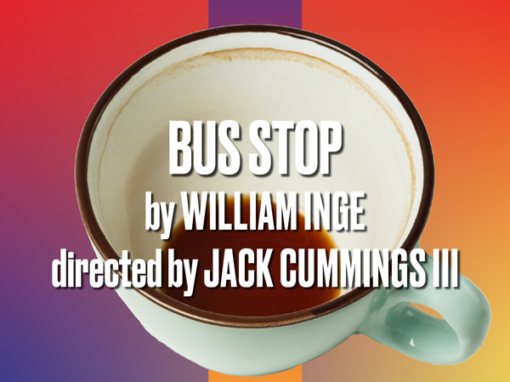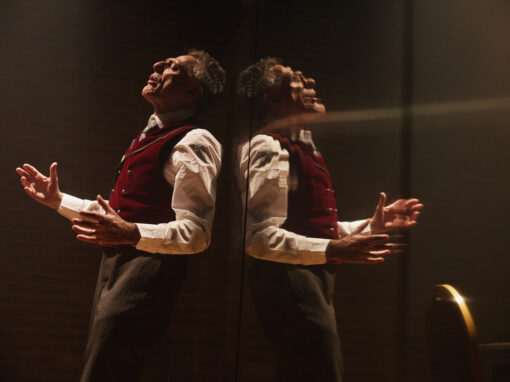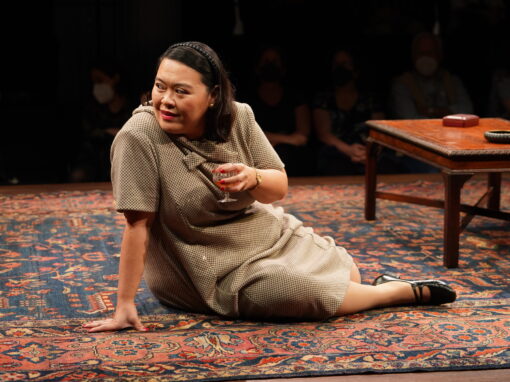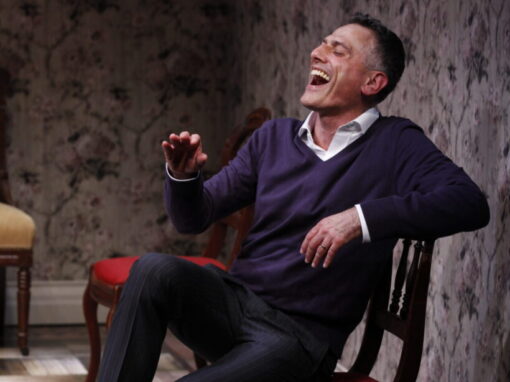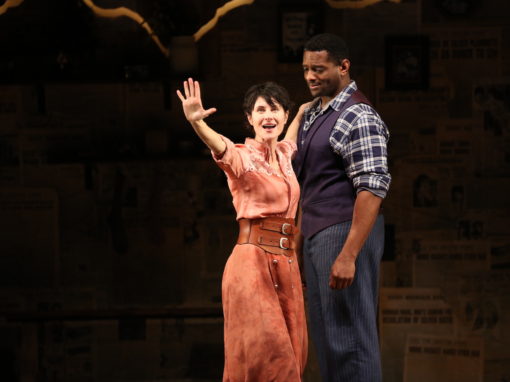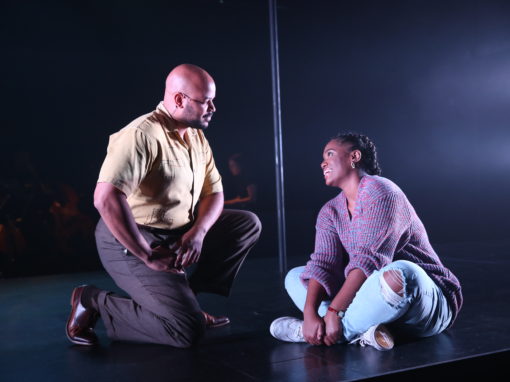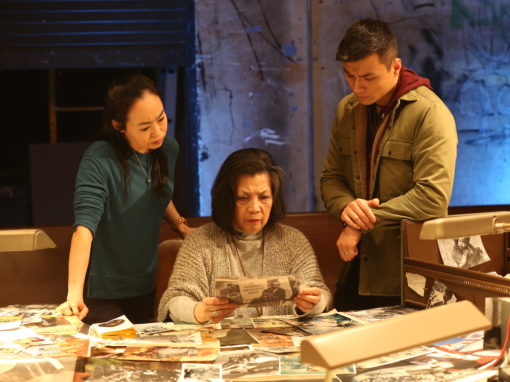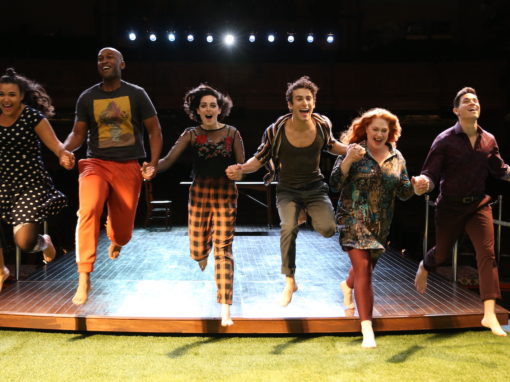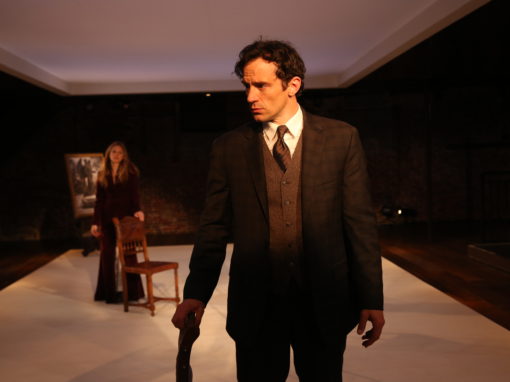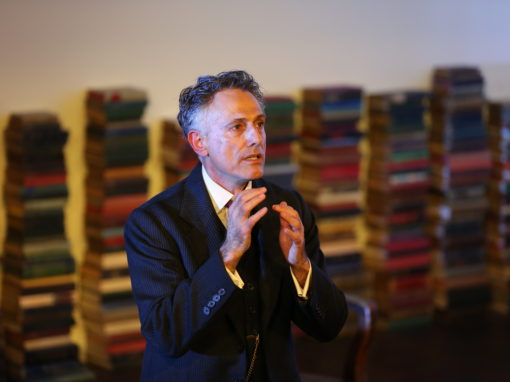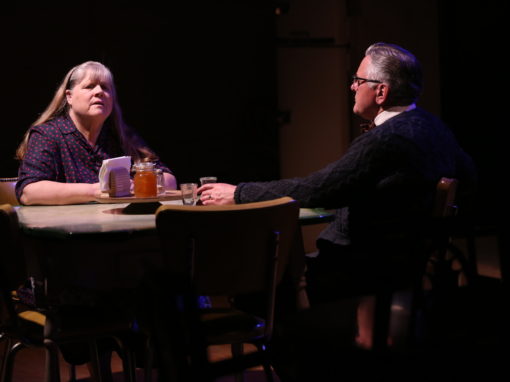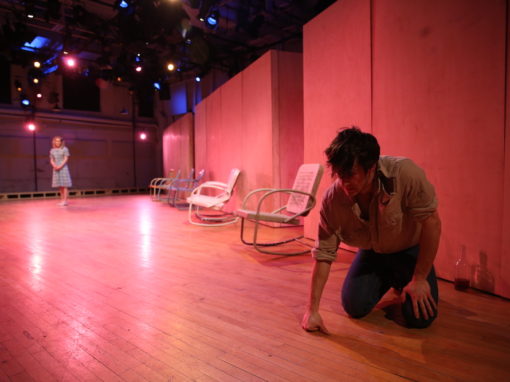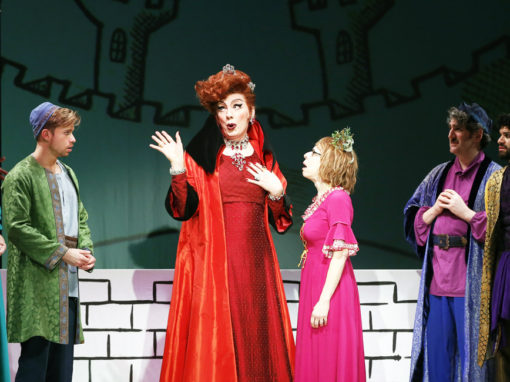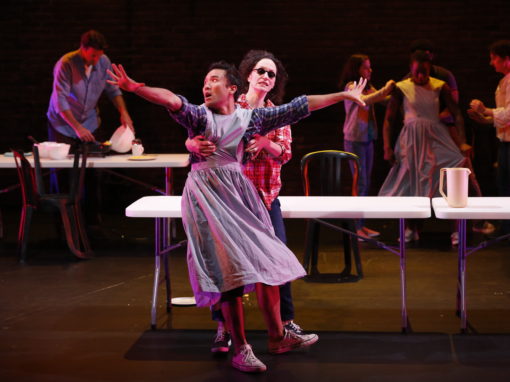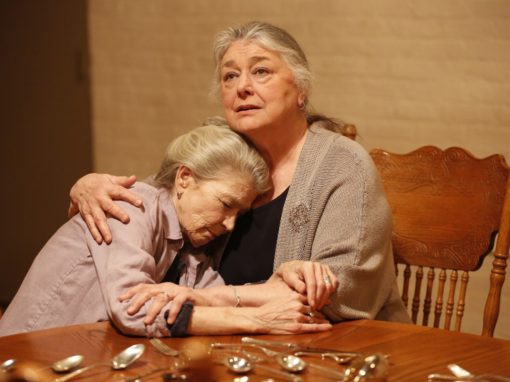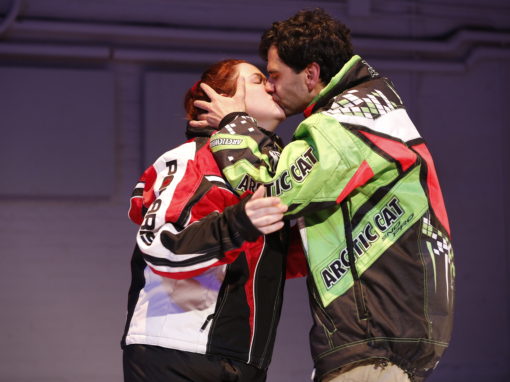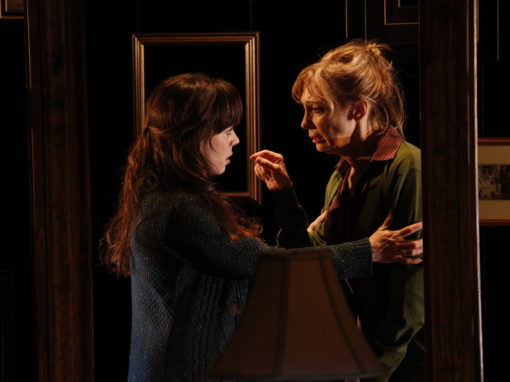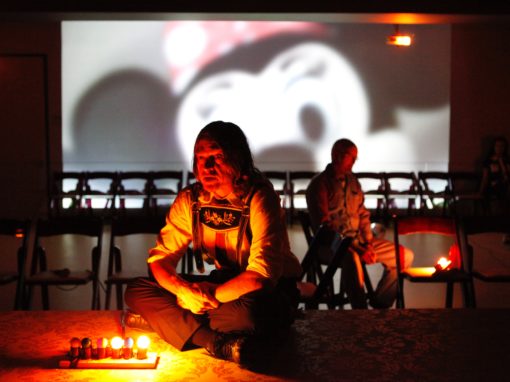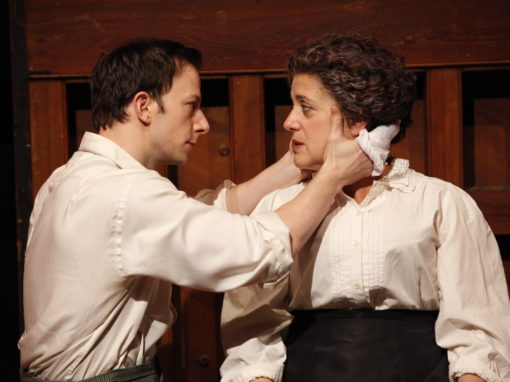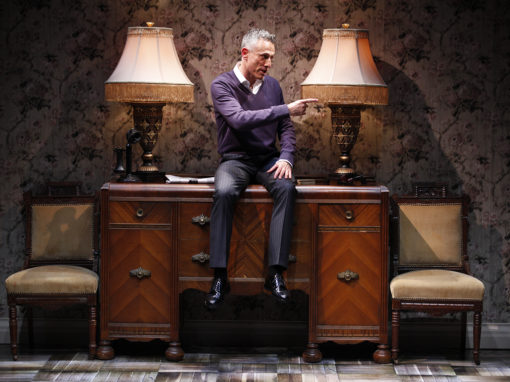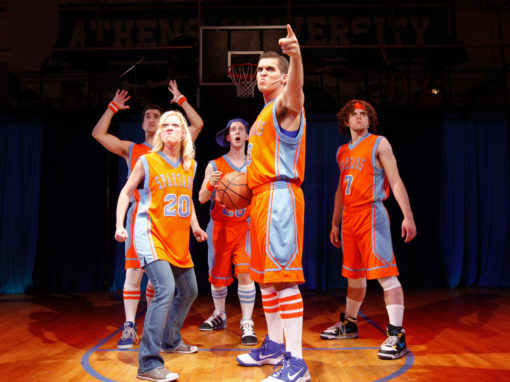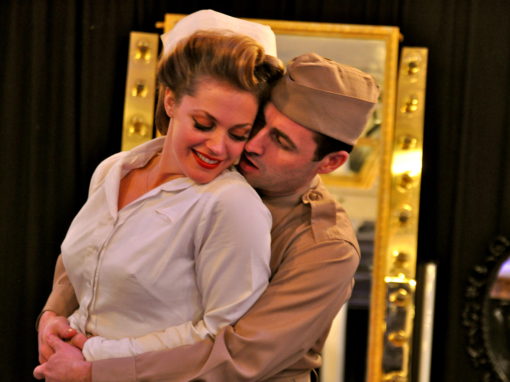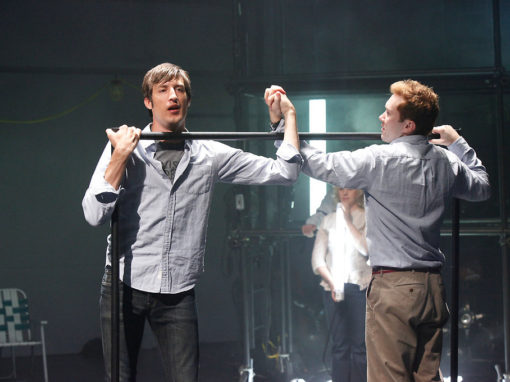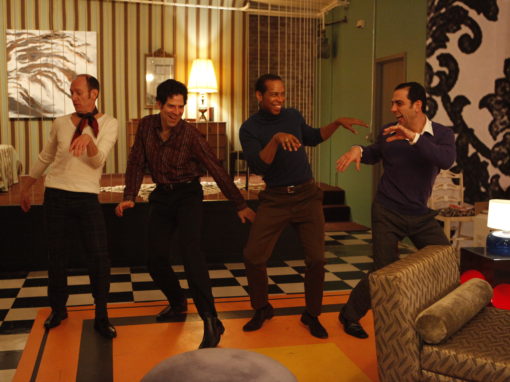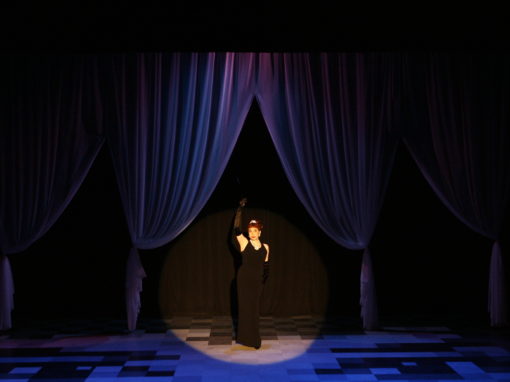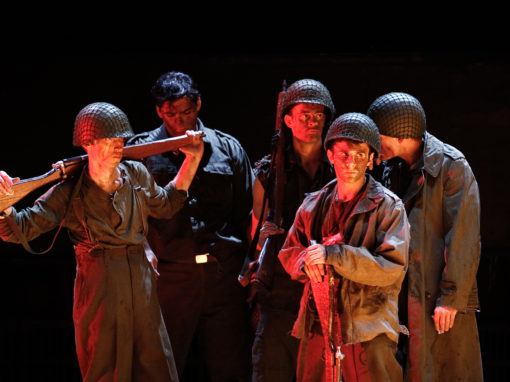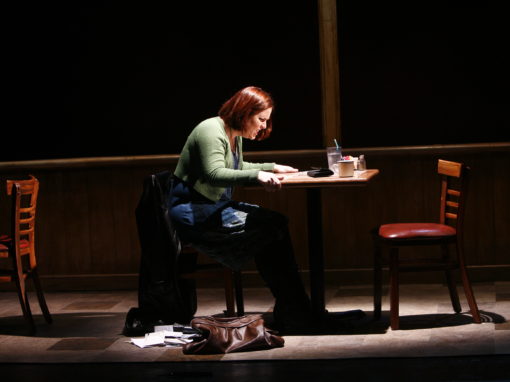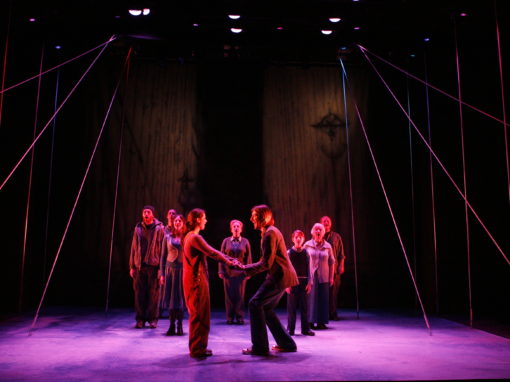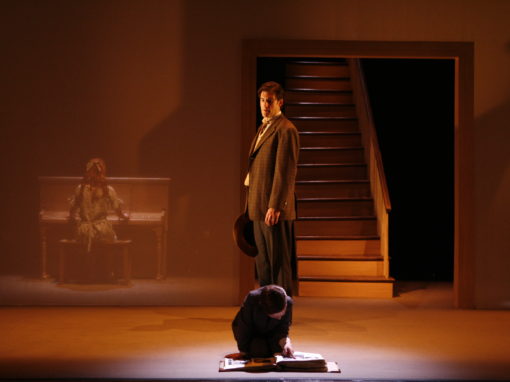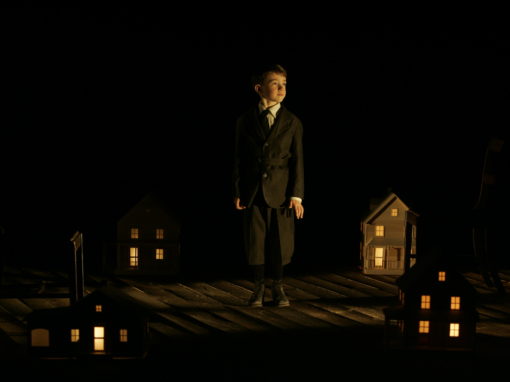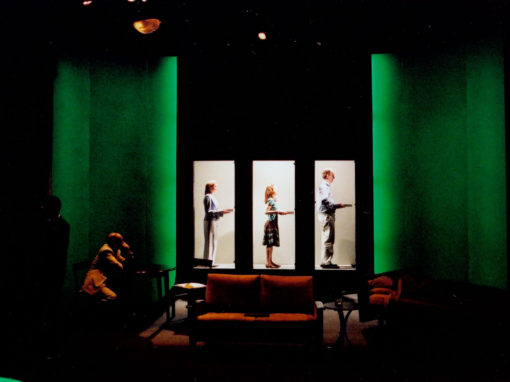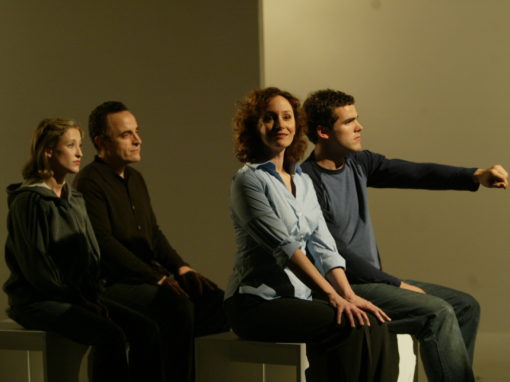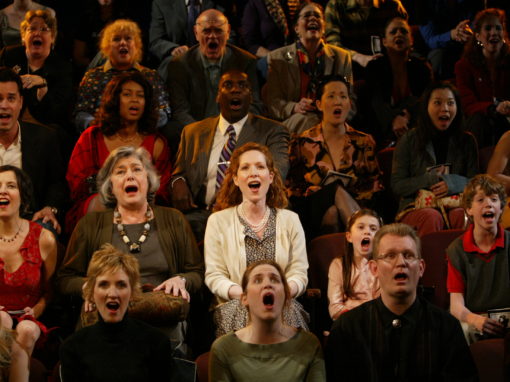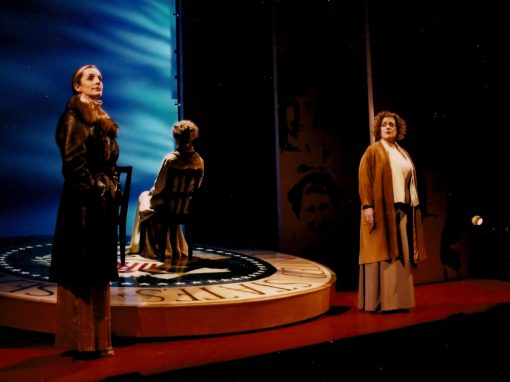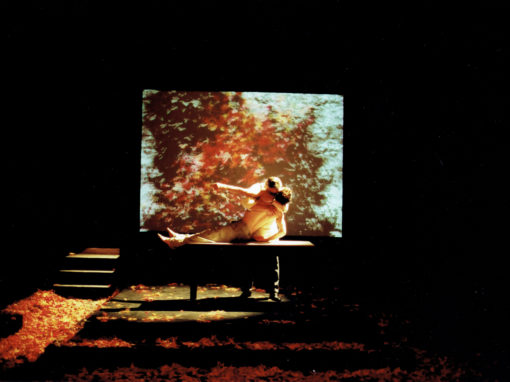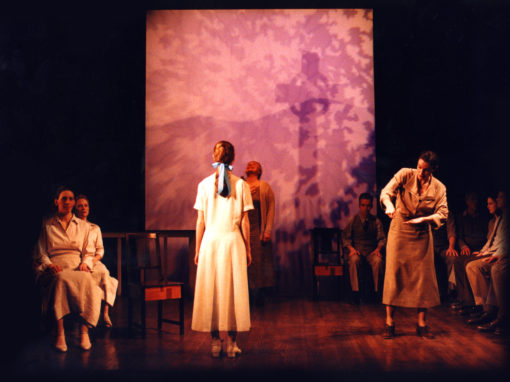Finding the Frequency // By Hannah Oren
TG’s Artistic Producer Hannah Oren gets in over her head and searches for the other side.
One afternoon a handful of years ago, I noticed something new on the bulletin board above the desk of Jack Cummings III (Transport Group’s Artistic Director and my office-mate/partner-in-crime). What started as utilitarian decor had slowly morphed into a peek inside Jack’s brain, additions meticulously curated and tacked at right angles. Production schedules, lists of upcoming projects, a security badge from New 42 Rehearsal Studios, a card from a loved one, a cut-out Louis Darling illustration of Ramona Quimby, favorite candid snapshots from rehearsals, printed photos of people who inspire him like the prolific Terrence McNally, tennis phenom Taylor Townsend, original Don Quixote Richard Kiley, and the latest that caught my eye, a quote that Jack had hand-written on a post-it:
“Pressure is a privilege.” – Billie Jean King.
Pressure is a privilege. Four words that I found to be completely arresting. A perspective I had never considered until reading them in Jack’s signature font.
I’ve always been paralyzed by any question resembling “Where do you see yourself in five years?” Whenever I tried to envision The Future, it was just kinda…blank. Like a TV that won’t get reception. I grew up in love with theatre, but as an observer. I don’t act, I don’t sing, so it never occurred to young me to seek out theatre camps or drama departments. I made the move from Iowa to New York on August 17, 2011 shortly after graduating with a degree in music, extremely unclear of the path forward. I started as an intern with Transport Group on August 18, 2011 and have grown professionally along with the company for the last decade (gulp!). As a fresh grad staring at a proverbial TV screen of static, dying to turn the channel but unable to find the clicker, I glommed on to any project Jack and Lori Fineman, our then Executive Director, would throw at me, including but not limited to marketing, box office, house management, graphic design, video editing, chaperoning Meryl Streep…it’s a wide spectrum.
In recent years my pocket of career has become more clear, but it wasn’t easy to find. This bumbling about is freeing in some ways. But it was crippling, too. Part imposter syndrome, part genuine inexperience—no matter the diagnosis, the curtain is going up at 8:05 whether I feel prepared or not.
In 2014, I assumed another unsuspectingly mighty task as script writer and collaborator with Jack and our maestro Joey Chancey to create the Anne L. Bernstein Concert Series. Our first installment would feature The Music Man, honoring its score by assembling 24 musicians to play the full, original orchestrations. One of my faves, as I’m as Iowa Stubborn as they come. I was raised with an intimate knowledge of the original movie soundtrack in the way other girls my age studied N*Sync’s seminal No Strings Attached. In 1962, my Grandpa and Grandma attended the premiere of the The Music Man in a special event that welcomed local band teachers (this qualified my Grandpa) to a screening, also attended by the movie-musical’s stars, held in Mason City, Iowa – Meredith Willson’s hometown, the archetype for River City, and a hop-skip from Buffalo Center, Iowa where my dad spent the first few years of his life.
A late-night Wikipedia rabbit hole led me to Willson’s autobiography, But He Doesn’t Know the Territory, which chronicles The Music Man from seed of the idea to multiple out-of-town try outs, up through opening night on Broadway. It’s a delightful breeze of a read with all the charm of Harold Hill—tons of vivid stories about the creative and producorial process—likely with some Midwestern-whopper embellishments for narrative effect. I sent the link to Jack and ordered two copies. We both dove into the memoir and Jack was immediately taken. He posed the question, “What if we brought these stories to life onstage?”
Jack’s idea was to put the show’s original book on the shelf. In its place would be stories of the real-life drama—the often-harrowing tales of what it took to get the show on its feet, narrated by the evening’s host between the familiar songs. It’s a way to get to know a score you’ve memorized every measure of, every line-reading, every orchestration flourish—but wait there’s MORE! Like discovering a prequel that you didn’t know existed to your favorite well-worn paperback.
Did we self-impose writing an entirely new “book” for a one-night concert, all from found research, in addition to producing the thing with 70+ artists? Yes, yes we did. Is that an absolutely insane undertaking? Yes, yes it is.
The proceeds from these concerts support Transport Group’s New Works Program, and as such, every actor and musician generously donates their time. This means every song has its own cast rather than asking a small handful of actors to learn entire roles. We bring the actors in only twice: once to learn their song, and again on the day-of during sound check with the orchestra, and that’s it. The performance comes together in a matter of hours right before it goes in front of an audience. It’s the stress of a rehearsal process, tech, previews, and opening night, packed into one afternoon. Jack has likened this to the world’s most difficult Project Runway challenge and I think even Tim Gunn would agree.
It was my first time in the trenches of a feat on this scale, not to mention the added pressure of a modest authorial stake. The day of The Music Man concert was a turbulent roller coaster—one of those wooden ones that you feel might fly off the track at any moment and actually does go airborne juuust a little bit when you go over the big hills, yet defying all odds, it somehow pulls you back into the station unscathed. In at least one intensely stressful moment, I was genuinely unsure if we’d end the evening with a complete show. Jack, of course, never wavered and got us there, the audience none the wiser. I think producing these concerts might be similar to childbirth, where the minute it’s over you’re zapped of the memories of the excruciating pain and in its absence is only the joy.
We schedule our second concert in August 2016, celebrating the 1954 version of Peter Pan. Panic. In truth, I was completely rattled by the experience of The Music Man—and I don’t see my nerves surviving round two. Yet, a second chance to support the creation of something wild and untamable while contributing in meaningful ways artistically is alluring. And this time, I’ll be better acquainted with the stress. I dare to let myself think theatre could have a place for me in this way—and one I never would have envisioned. Is this the channel the rabbit ear antenna has been searching for? I try to picture the best version of myself, effortlessly rising to the occasion: cool-calm-collected, shepherding the evening to total success. Instead, only static.
Longtime TG collaborator and genius casting director Nora Brennan puts together a mega-talented, pint-sized cast of Darling Children and Lost Boys. Jeffrey Denman agrees to not only choreograph an original number but also recreate Jerome Robbins’ choreography for two more numbers. Star power like Carolee Carmello, Rachel Bay Jones, Marc Kudisch, Ann Harada, Elizabeth Stanley, Ruthie Ann Miles, Mary Testa, and 50 more top-tier actors sign on. Joey assembles a gorgeous orchestra replicating the original instrumentation and then some. The iconic Charles Busch agrees to host.
Unlike The Music Man, there is no tidy memoir to provide scaffolding for the Peter Pan script. Jack and I plan to stitch together a narrative from exhaustive research. Reading biographies of the authors and stars, chapters of Golden Age history books, scouring periodical archives for any Peter Pan-centered article written between 1954 and present—a mountain of material stands before us. Quotes, musings, and anecdotes are deemed useful (or not)—the useful passages marked with an index card—index cards organized, ordered, nixed, and reordered—a script begins to emerge.
We find time to write in between managing the score with Joey, finding performers, finding more performers when scheduling conflicts arise, coordinating rehearsals—a particular challenge with Peter Pan which has more group songs than a summer camp—answering thoughtful, loving, THOROUGH questions from parents, crafting dramaturgical lobby displays, filling seats, taking care of the multiple widows of the authorial estates, and even roping in legendary two-time Tony nominee Michael Starobin to provide original orchestrations for a cut song we choose to reinstate.
The concert becomes more unwieldy by the day. The exponential number of moving parts coupled with my very little experience leaves me honestly petrified. Much of the day-of’s pressure rests on Jack’s shoulders as the director and visionary, but I see an opportunity to ensure that’s all he has to focus on. I want to be the person who can keep one eye onstage and one eye backstage, while monitoring the front of house with a third eye that materializes for special occasions. I want to make it my job to make sure people know where they’re going and how to get there literally and metaphorically—to anticipate potholes and repave the road before we come to them, and have a few detours planned if the bridge is out. I want to be this person, but being her feels out of reach.
Jack and I take our explosion of xeroxes to his apartment on the Upper West Side for some much-needed room. The night before the concert, we finally put the script to bed. Despite it nearing 1 a.m. and being due at The Signature Theatre Center in a matter of hours for the 10 a.m. orchestra rehearsal, I decide to stop at the office to print copies of the script before heading home. I hail a cab a block from Jack’s. Somewhere along the West Side Highway while running through every last detail of tomorrow’s impending marathon, it gets to me. I feel a buildup of tension behind my eyes—a few hot tears escape. I stare out the window toward the Hudson. Around 56th street, the cab driver catches me in her rearview mirror.
“Everything okay back there?” she says, in the warmest, most maternal tone imaginable.
Cue flood gates.
I can’t be certain what I blubber. Who knows if this kindhearted woman can make sense of “muffled…concert…muffled…stressed…muffled…Peter Pan but like the musical…no not the Disney version…” What must have come through, though, is a young woman in over her head, in need of some empathy.
And I can’t be certain of her exact words, in the haze of my emotional vomit. But these words I do remember: “I think you’re upset because you care. And what a gift that is.”
I realize this is it. This is the pressure it’s a privilege to feel.
This New York miracle of a cab driver assures me everything will be okay. I believe her.
Before leaving the office, I send the final preparatory e-mail to Stage Management at 3:30 a.m. Fueled by adrenaline and coffee, the next day is a thrill. Not without its stress, of course. But I can feel myself finding a real, professional footing—a feeling I have been searching for since August 17, 2011.
It’s always so moving to me the way theatre people come together in ways only theatre people can—to embrace a big lift, making the thing happen. The summer of 2021 will go by without our annual concert installment. We’re hoping to bring it back for summer of 2022, which will end a three-year hiatus. As we slowly but surely return to the theatre world, there will be many markers of progress along the way, many “firsts.” But our first concert back is one I’ve got my eye on. It may sound strange to long for a reason to quietly sob in the back of a cab, but I think Billie Jean would understand.
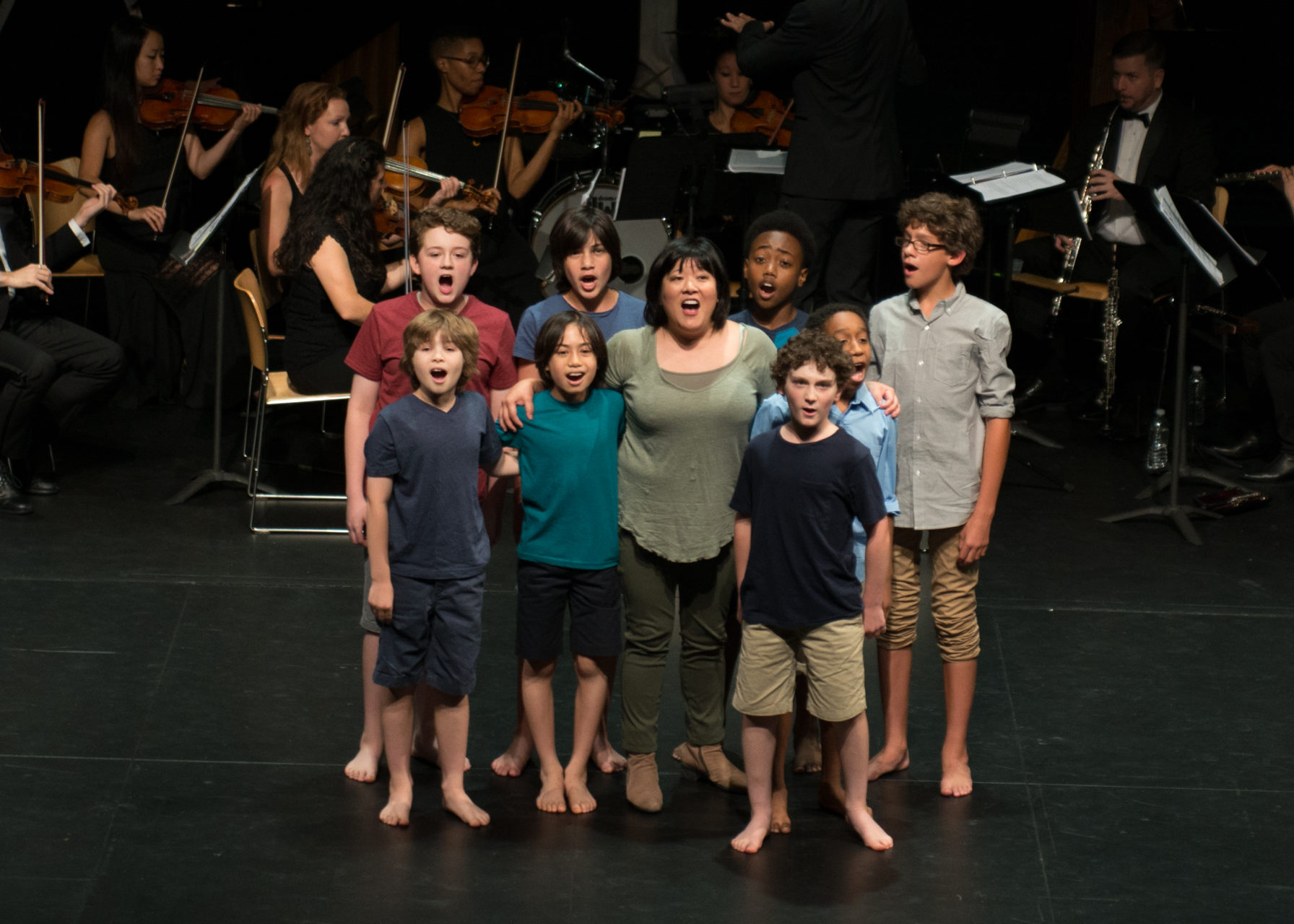
About the author:
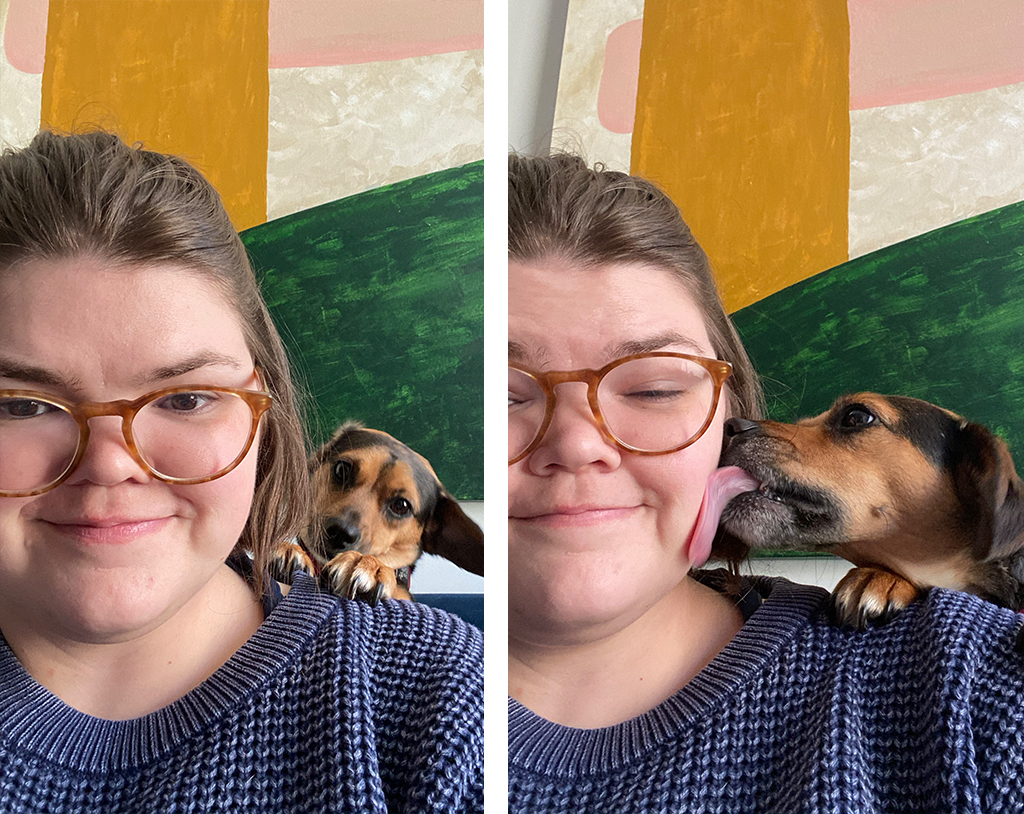
Explore Our Past Shows
